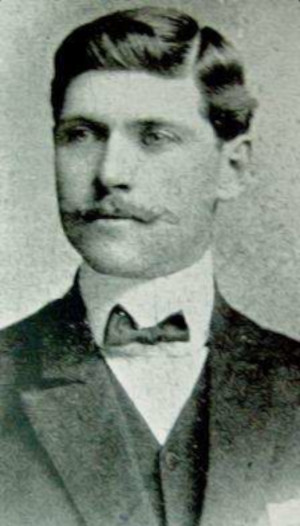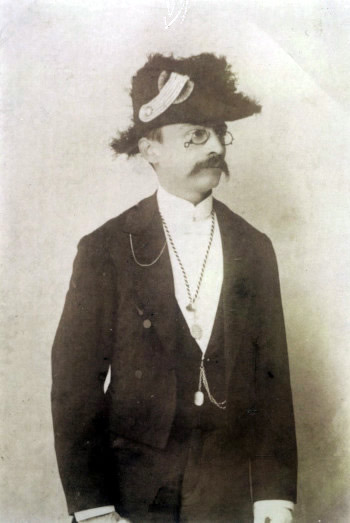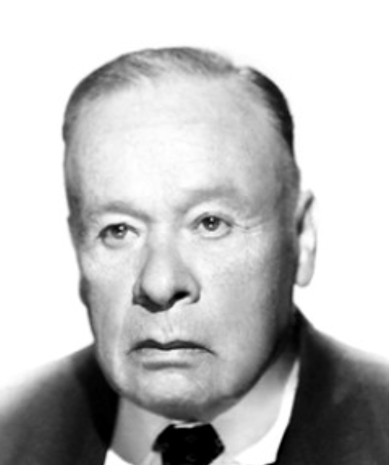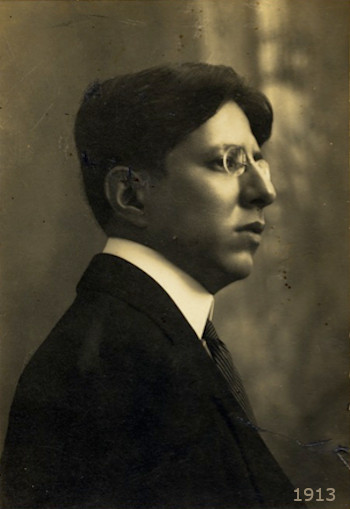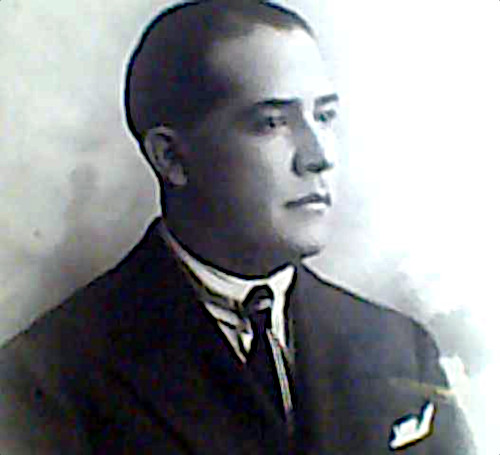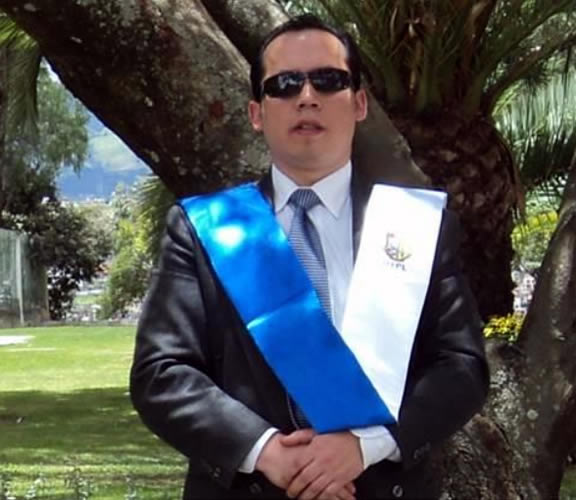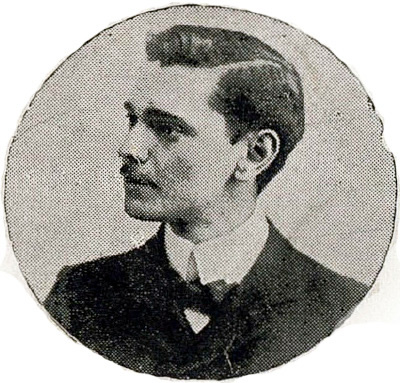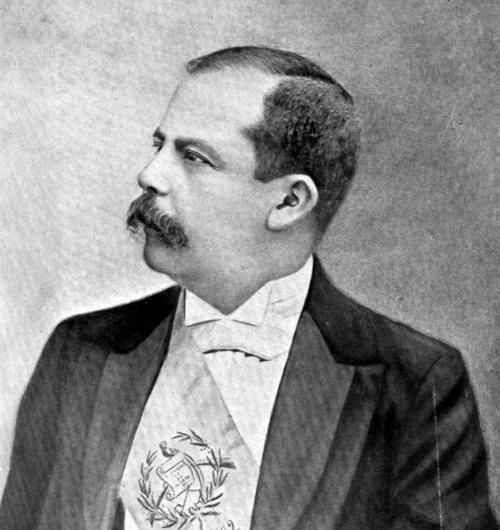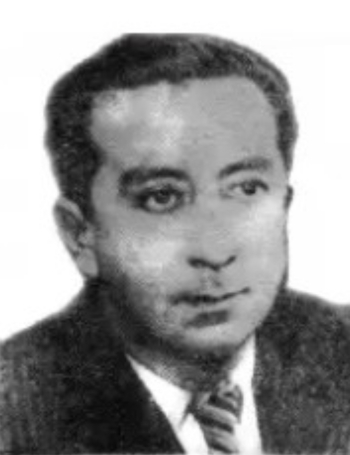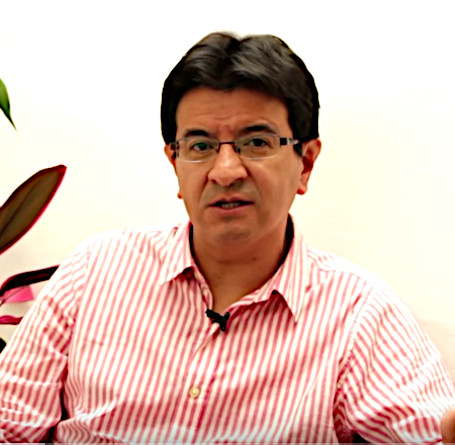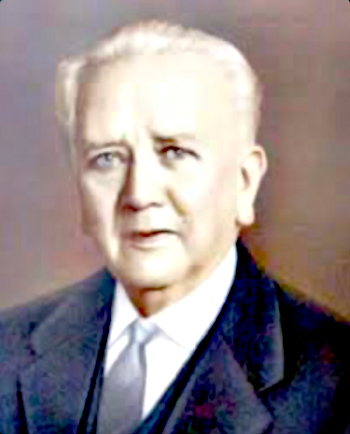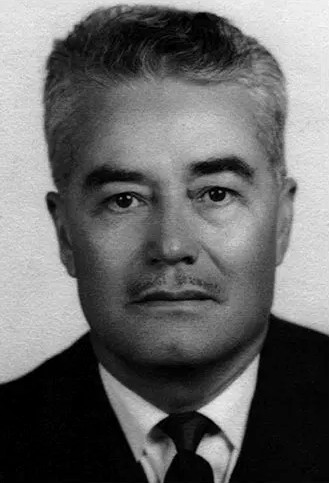Alfonso Moscoso Sánchez (Ambato, January 22, 1879 – Quito, June 26, 1952) was an Ecuadorian poet and history professor. He belongs among the first writers to use modernismo in their poetry. Graduated in jurisprudence, he held the positions of Minister of the Supreme Court of Justice, Deputy, and Private Secretary of General Leónidas Plaza during his presidency. Although few of his poems exist, they are masterfully written. A modest and simple man, he was always reluctant to publish his poems. Most of his production is found in the books Vidriecitos de colores (1945) and Azabaches (1951). His famous poems are: “Los Aserradores,” “Suspirillos germánicos,” “Saudade,” “El viejo de la esquina” and “Relieve.”
Continue reading “Alfonso Moscoso”Posts
Miguel Valverde
Miguel Valverde Letamendi (Guayaquil, December 6, 1852 – Rome, April 19, 1920) was an Ecuadorian politician, diplomat, writer, poet, journalist and translator. He is considered a precursor of modernismo in Ecuador. In 1890 he was the Director of the Municipal Library of Guayaquil. In 1915 he published “Libro de versos,” containing a translation of Victor Hugo’s “Religions et religion,” a political tract supporting belief in God but attacking organized religion, which caused a scandal among followers of the church. Due to his political views he was often arrested and many times exiled. He also served the country in various governmental posts during the presidencies of his allies. In 1883, General Eloy Alfaro appointed him Minister of the Interior, War and Foreign Relations of the Governments of Manabí and Esmeraldas. In 1901, General Leonidas Plaza appointed him Minister of the Interior and Police.
Continue reading “Miguel Valverde”Isaac J. Barrera
Isaac J. Barrera (Otavalo, February 4, 1884– June 29, 1970) was a writer, journalist, literary critic, historian, biographer and university professor. As a journalist, he founded several influential literary magazines and worked on the editorial staff of El Comercio between 1933-1955, authoring over 7,000 articles in this period. He wrote biographies on Vicente Rocafuerte and Simón Bolívar. He also authored book-length studies on Ecuadorian literature, the history of journalism in Ecuador, and colonial Quito. His best-known book is “Historia de la literatura ecuatoriana“ (1944; History of Ecuadorian Literature), which organized authors by genre and provided comparative analyses of their works, as well as an examination of the literary theories underpinning them. He was a member of the Ecuadorian Academy of Language. In 1973, a collection of his poetry was published posthumously.
Continue reading “Isaac J. Barrera”Miguel E. Neira
Miguel E. Neira was a modernist poet and journalist from Guayaquil, Ecuador. He became well-known with his 1907 book “Baladas de la Miseria” (Misery Ballads). His works were published in magazines like “Alto Relieves” and “El Guante,” a publication he helped to found. Transitioning to public administration, Neira eventually stepped back from the literary world. However, his literary efforts, especially through “El Guante,” significantly shaped modernist literature in Ecuador and supported the country’s intellectual independence from Spain.
Continue reading “Miguel E. Neira”Victor Hugo Escala
Victor Hugo Escala Camacho (Guayaquil, June 29, 1887 – April 30, 1964) was a poet, journalist, historian and diplomat. Along with Enrique Baquerizo Moreno and Manuel J. Calle, in 1907 he plotted an uprising against General Eloy Alfaro, which led to his imprisonment and exile. Upon returning to Guayaquil in 1909, he went to work for the literary section of El Telégrafo newspaper. His first poetry book “Motivos Galantes,” was published in Chile in 1915. After the 1918 armistice, he traveled to Paris where the great poet Ernesto Noboa y Caamaño served as his guide. One night they were invited to lunch at Gonzalo Zaldumbide‘s house, and the latter urged him to write. The outcome was “Kaleidoscope,” (1922) a travel journal with prints and landscapes of Europe and the East.
Continue reading “Victor Hugo Escala”Antonio C. Toledo
Antonio Clímaco Toledo Sánchez (1868-1903) was an Ecuadorian poet. His poetry was influenced by Romanticism and Neoclassicism. He has been compared to the Spanish poet Gustavo Adolfo Bécquer. In 1915 a posthumous collection of his poetry was published in a book titled Poesías, prologued by José Trajano Mera.
Continue reading “Antonio C. Toledo”Juan Jacobo Melo
Juan Jacobo Melo Fierro (Tulcán, 1973) is an Ecuadorian writer, critic and essayist. He has a masters degree in Latin American Literature from the Private Technical University of Loja. Some of his work has been published in prestigious literary magazines in Ecuador as well as Spain, Mexico, Chile and Argentina. Some of his essays have been translated into English and French.
Continue reading “Juan Jacobo Melo”Emilio Gallegos del Campo
Emilio Gallegos del Campo (Guayaquil, September 20, 1875 – May 15, 1914) was a poet, playwright, journalist and diplomat. In 1898 General Eloy Alfaro, who was a friend of his family and called him “Emilito,” appointed him Consul of Ecuador in London, a post which he held until 1901. In Europe, he was decorated by the French government with the Legion of Honor. Together with his brother, he founded several newspapers, including “América Modernista,” which published poets of the modernismo movement. His brother was the poet Joaquín Gallegos Del Campo whose son was the celebrated novelist Joaquin Gallegos Lara.
Continue reading “Emilio Gallegos del Campo”Adolfo Hidalgo Nevares
Adolfo Hidalgo Nevares, sometimes spelled Nevarez, (Guayaquil, March 18, 1891 – Quito, 1934) was a doctor, writer and poet. Under the pseudonym Máximo de Bretal he wrote articles for El Guante magazine on topics such as politics, literature and poetry. He also wrote for El Telégrafo of Guayaquil and El Universitario of Quito. In 1920 he was appointed Deputy of Guayas. In 1925 he became a professor at the University of Guayaquil’s new Dentistry and Veterinary schools, and in 1926 he was named Minister of Public Education. He led a bohemian life and had an on and off again addiction to morphine which he sometimes used in the company of some of the members of the Decapitated Generation, a group of young Ecuadorian poets who died young by suicide. He too died by suicide in 1934, at the age of 43.
Continue reading “Adolfo Hidalgo Nevares”Nicolás Augusto González
Nicolás Augusto González Tola, also N.A. González (Guayaquil, April 14, 1858 – Buenos Aires, Argentina, January 18, 1918) was an Ecuadorian writer, playwright, novelist, journalist, poet, historian and diplomat. His plays in verse are among his best known works, which include, “Hojas secas,” “Entre el amor y el honor,” and “Amor y Patria,” which he co-wrote with Alfredo Baquerizo Moreno (President of Ecuador from 1916-1920). “Cuestión Histórica, el Asesinato del Gran Mariscal Ayacucho,” (written between 1887 and 1889), is perhaps his most important and controversial work, in which he accuses General Juan José Flores of being behind the assassination of Antonio José de Sucre, prompting hatred and persecution from Flores’ son Antonio Flores Jijón (President of Ecuador from 1888-1892). Due to his political views and polemic writing he was exiled to other countries, such as Peru, Colombia, Guatemala and Spain. From 1908-1913 he lived in Spain as a diplomat, and published there his poetry book, “Humo y cenizas” (1908) and his novel “La Llaga” (1908). He returned to Guayaquil in 1917 where a special committee chaired by José Luis Tamayo (President of Ecuador from 1920-1924) awarded him the “Golden Lyre”.
Continue reading “Nicolás Augusto González”Jorge Reyes
Jorge Reyes (Quito, 1905-1977) was an Ecuadorian poet, journalist, essayist and socialist. He directed the literary section of the socialist newspaper La tierra, and for many years he was an editorial staff writer for the newspaper El Comercio. His poetry books include: “Treinta poemas de mi tierra” (1926) “Quito, arrabal del cielo” (1930) and “El gusto de la tierra” (1977).
Continue reading “Jorge Reyes”Leovigildo Loayza Loayza
José Leovigildo Loayza Loayza (Piñas Canton, El Oro Province, October, 1905 – Guayaquil, August, 1971) was an Ecuadorian poet. He worked at the Guayaquil branch of the Central Bank of Ecuador, and at the César Borja Lavayen night school. In 1972, a high school named after him was founded in the town where he was born – El Colegio Nacional Técnico Leovigildo Loayza Loayza. He authored the lyrics of the pasillo songs “Obsesión” and “Madrigal de seda,” and also wrote poems and hymns.
Continue reading “Leovigildo Loayza Loayza”César Chávez Aguilar
César Chávez Aguilar (Tulcán, Ecuador, 1970 – November 10, 2022) was an Ecuadorian writer, bibliographer and librarian. He studied law at the Central University of Ecuador. His stories and essays were published in national and international magazines such as: Línea Imaginaria, Letras del Ecuador, and Encuentros (National Magazine of Culture). He carried out bibliographic research for the Municipality of Guayaquil and for the Benjamín Carrión Cultural Center in Quito, where he was employed as the library director. In 2012 he published “Herir la perfección,” his first book of short stories.
Continue reading “César Chávez Aguilar”Pío Jaramillo Alvarado
Pío Jaramillo Alvarado (Loja, May 17, 1884 – July 24, 1968) was an Ecuadorian writer, liberal lawyer, politician, law professor and sociologist. His best-known book El indio ecuatoriano (1922; The Ecuadorian Indian), established him as one of Ecuador’s leading intellectuals and a key participant of the indigenista movement. Born to a white mestizo family, he critiqued indigenous realities from a non-indigenous perspective, which is typical of early twentieth century indigenistas. In 1940 he led the Ecuadorian delegation to the Pátzcuaro Congress in Mexico that founded the Interamerican Indigenist Institute (III). Three years later he helped found the Ecuadorian Indigenist Institute (IIE), for which he subsequently served as director. He contributed essays to newspapers throughout the country, most significantly under the pseudonym Petronio in the liberal newspaper El Día.
Continue reading “Pío Jaramillo Alvarado”Gonzalo Rubio Orbe
Gonzalo Rubio Orbe (Otavalo, Imbabura, June 29, 1909 – October 24, 1994) was an Ecuadorian anthropologist, historian, biographer and educator. He was a protégé of Pío Jaramillo Alvarado, a key leader of the indigenista movement. Rubio’s works represent some of the earliest anthropological assessments of indigenous societies in Ecuador. His principal book is Los Indios Ecuatorianos (1987; The Ecuadorian Indians). From 1971 to 1977, he directed the Inter-American Indian Institute (III), based in Mexico. He also wrote biographies on notable Ecuadorians, such as Luis Felipe Borja and Eugenio Espejo. An indefatigable educator, he continued to lecture to university students until his dying day.
Continue reading “Gonzalo Rubio Orbe”
